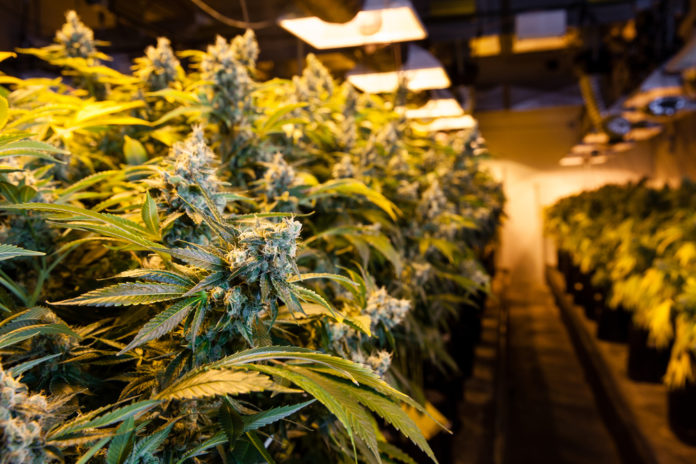Five states (plus about 50 Oregon local jurisdictions) are voting in November to legalize recreational marijuana use. If all five say yes, it will mean a quarter of the U.S. population will live in states where recreational cannabis is de facto legal despite continuing federal regulations.
It could prove to be a pivotal moment in the country’s tortured relationship with cannabis. Importantly, such increasingly widespread acceptance could lead to real opportunity as the country moves past failed prohibition efforts to build a new cannabis economy that serves the needs of all stakeholders.
While all those states are important, none is more so than California. And in all of California, no place is more important than its largest city, Los Angeles. Unfortunately, the city still must resolve the loopholes, conflicts and contradictions between current state and its local laws. Los Angeles is too big to sit on the sidelines. The question is whether it will, and what that may look like.
About one in eight Americans live in California, and its economy is bigger than all but a handful of nations. Add in its role as home to global agenda setters in Hollywood and Silicon Valley, and it’s obvious that what happens here reverberates far beyond the state’s borders.
But should California’s legalization measure, Prop. 64, indeed pass as current polls suggest, Los Angeles must play a vital role in building a legal cannabis industry.
Part of the problem stems from 2015’s state Medical Marijuana Regulation and Safety Act, or MMRSA, which creates a dual state-local licensing process for cannabis-related businesses, including cultivators, dispensaries, transporters, labs, manufacturers and distributors. These licenses are expected to be available in 2018.
But as it stands, MMRSA’s dual-licensing requirement presents significant impediments to a regulatory system that can provide the consistency and fairness needed to build a real cannabis economy..
Cities and counties must decide whether to issue local permits, in a process that will be different for each local jurisdiction. Already, it has proven somewhat chaotic as locales decide how to award a limited number of permits that could be worth millions of dollars to recipients. Some cities have been accused of favoritism and corruption, while others are engaging in a more thoughtful and transparent process.
In Los Angeles, the permit process is further complicated by 2013’s Measure D, which banned all cannabis-related businesses in the city but also grandfathered in about 135 pre-2007 dispensaries with limited legal protections.
That backward-looking measure has been an epic failure, pitting grandfathered dispensaries against other local businesses. It has left many hundreds of clients uncertain about what’s legal and acceptable, and both sides complaining about erratic and arbitrary enforcement.
As a result, for years, Los Angeles has waged a flawed, confusing and schizophrenic policy regarding cannabis businesses. Scores of cultivation, manufacturing, delivery and other tax-paying businesses have been prosecuted, threatened with prosecution, or chased into the shadows for conduct that is tolerated in other cities and is legal under state law.
Despite Measure D’s limits, the existence of so many companies is proof that demand far outstrips what the measure allows. The measure artificially constrains, to almost no one’s benefit, a market that can support hundreds of dispensaries, as well as cultivators, manufacturers and related businesses.
Given L.A.’s size, this situation will only worsen if state voters (including, certainly, hundreds of thousands of Angelenos) approve recreational marijuana use. A hobbled cannabis industry in this city threatens to undercut Prop. 64’s success everywhere. This puts pressure on the City Council to formulate forward-thinking policies that legitimize and build the cannabis economy here.
To date, L.A.’s commercial cannabis industry has been a two-class system. The grandfathered dispensaries enjoy a privileged status, and many are part of a trade group lobbying to protect their special position while ignoring the problematic status of hundreds of other businesses and the broader needs of 4 million city residents.
By contrast, the LA Cannabis Task Force (whose members include all types of dispensaries) is backing a broader approach that allows licensees from all business sectors. It welcomes new entrepreneurs, and encourages a far more diverse base of potential owners, including those trying to serve neglected minority communities. This approach would partner the industry and city in a process similar to Colorado’s successful regulatory system.
A recent City Council report suggests ways to replace Measure D, including a complete ban, licensing only grandfathered dispensaries, or creating broader licensing opportunities that accommodate a broader array of dispensaries and other business segments. The council has indicated that it wants guidance from the industry and other stakeholders in setting the right number of dispensaries, along with other common-sense restrictions.
What comes out of these discussions will significantly impact Los Angeles, and the state, for years to come. It is a tremendous opportunity for Los Angeles to be a player in the new cannabis economy. And it’s a chance to move beyond a backward-looking and failed era of prohibition. It’s an opportunity the city should seize to help build the future, together.
Michael Chernis is a Los Angeles-based attorney and expert specializing in the cannabis industry. With decades of experience as an attorney handling high-profile big business cases and civil rights issues, he has lobbied on behalf of dispensaries to have more open laws surrounding medical marijuana.












